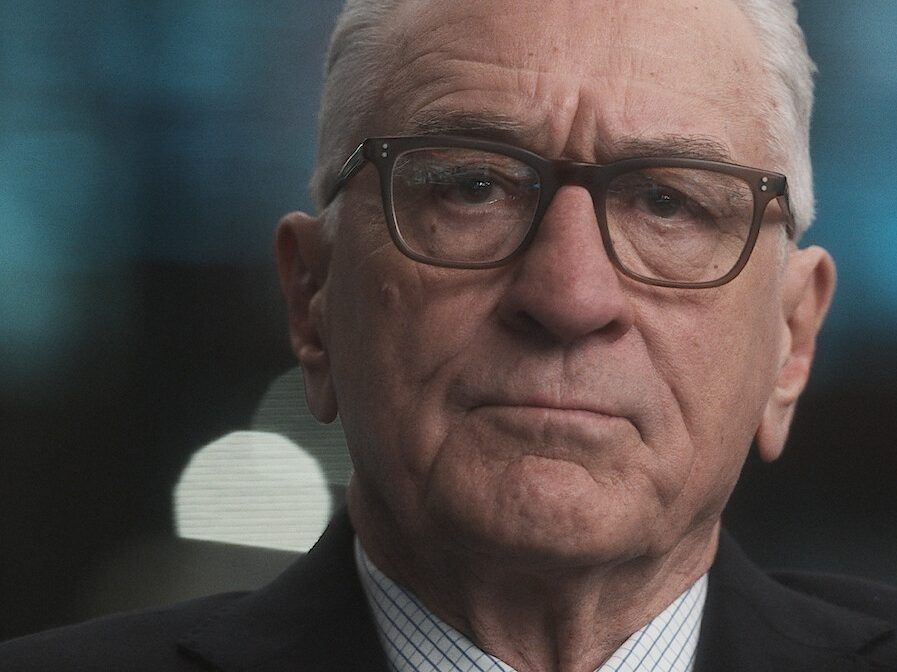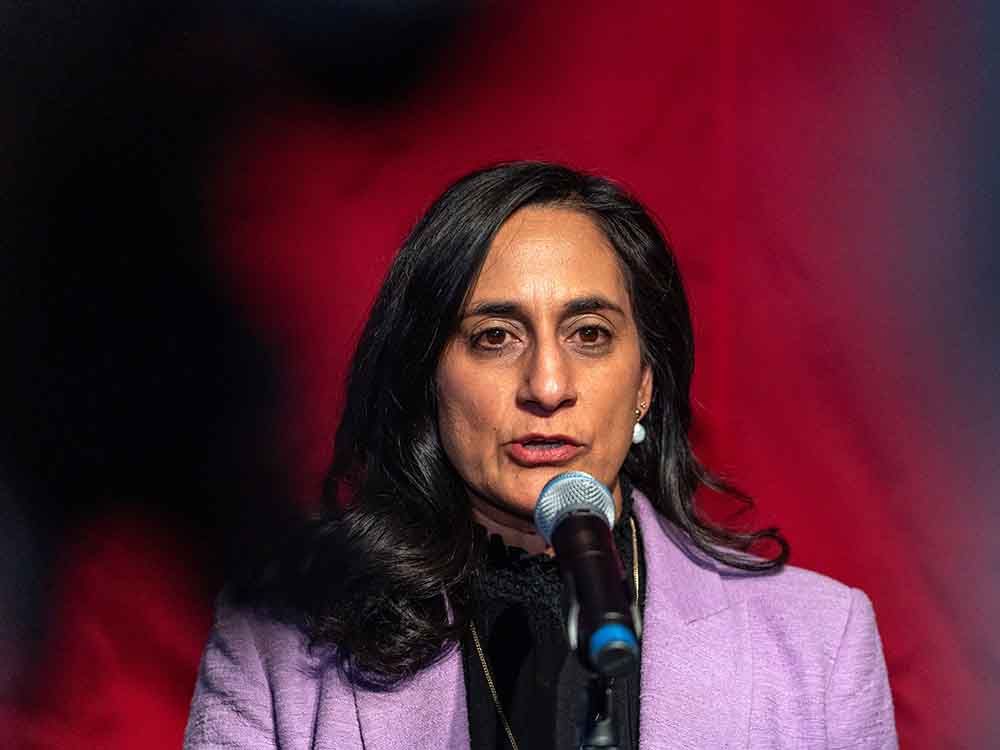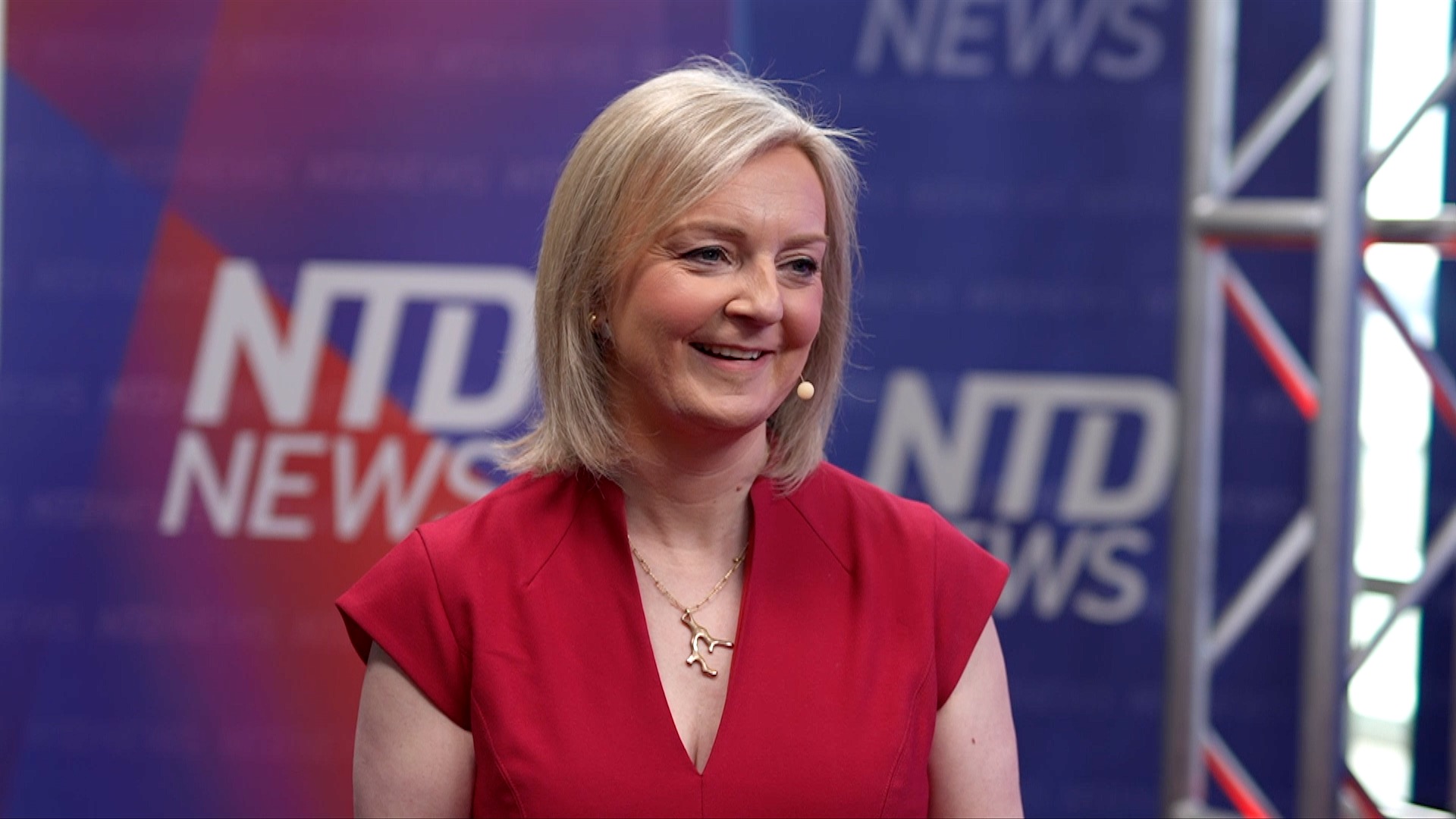In ‘Zero Day,’ a great cast and a muddy story cancel each other out

Published Feb 20, 2025 • Last updated 5 minutes ago • 5 minute read
Join the conversation
Robert De Niro stars in "Zero Day." Photo by Netflix
Reviews and recommendations are unbiased and products are independently selected. Postmedia may earn an affiliate commission from purchases made through links on this page.
It’s unfortunate for “Zero Day,” Netflix’s new limited series starring Robert De Niro, that no political thriller, however outlandish, holds a candle to the current state of American politics. But that’s not the series’s main problem. Created by Michael Schmidt, Noah Oppenheim and Eric Newman, “Zero Day” should be one of the cleverest political dramas around. Instead, it makes the sixth season of “House of Cards” look like Shakespeare.
Advertisement 2
Story continues below
This advertisement has not loaded yet, but your article continues below.
Don't have an account? Create Account
or
View more offers
Article content
Article content
Article content
De Niro plays George Mullen, a widely respected ex-president who served one term and walked away at the height of his popularity rather than seek reelection, ostensibly because he was grieving his son’s death from an overdose. Until the titular “Zero Day” attack takes place – wherein every electronic system in the country switches off for a full minute, causing car accidents, train derailments and thousands of deaths – he’s enjoying retirement while working on his memoirs.
Mullen is recruited back into service, mid-crisis, by the sitting president, a Black woman named Evelyn Mitchell (Angela Bassett). Her legislative agenda was already imperiled by a hostile speaker of the House (Richard Dreyer, played by Matthew Modine), and her new administration cannot risk being seen as weak or slow to respond to a potential foreign attack. Russia is naturally suspected, and so, together with Congress, she authorizes the creation of a commission to investigate the incident using unprecedented powers of surveillance and the suspension of habeas corpus. She asks Mullen to lead it.
Advertisement 3
Story continues below
This advertisement has not loaded yet, but your article continues below.
Article content
Mullen’s wife, Sheila (Joan Allen), a jurist awaiting confirmation to the New York Court of Appeals, argues that no one should have that much power – which is precisely why he, and only he, should run the commission. Mullen’s daughter, Alex Mullen (Lizzy Caplan), a sitting congresswoman, reminds her father that “it’s just temporary” is precisely what dictators say. She advises him to pass, arguing that everyone involved is weaponizing the crisis for their own ends.
Spoiler: He takes the job.
“Zero Day” is tough to discuss because the plot consists largely of implausible twists, most of which flow out of a political environment so alien to our own (while shuffling superficially similar figures) that it feels less incisive than loopy. A viewer unfamiliar with the United States might reasonably conclude, from this show, that the American public reflexively rallies to the defense of “radical leftists” and protests in defense of their civil liberties. (Also championing their rights: a Tucker Carlson type, played by a hammy and clearly delighted Dan Stevens.)
Your Midday Sun
Your noon-hour look at what's happening in Toronto and beyond.
By signing up you consent to receive the above newsletter from Postmedia Network Inc.
Thanks for signing up!
A welcome email is on its way. If you don't see it, please check your junk folder.
The next issue of Your Midday Sun will soon be in your inbox.
We encountered an issue signing you up. Please try again
Article content
Advertisement 4
Story continues below
This advertisement has not loaded yet, but your article continues below.
Article content
In this universe, it makes sense that Mullen’s daughter – the aforementioned Alex – is chosen to be the ranking member of the House committee charged with overseeing her father’s commission. The show’s cannier political operators appear to agree that this arrangement will quell the public’s concern about the senior Mullen’s corruption and potential overreach. Why? Because Alex is known for “opposing” her father. (No specifics are given.)
It’s always illuminating to see which aspects of political life shows like these treat as fungible. Does it matter that Carlson championed Donald Trump-supporting Jan. 6, 2021, rioters rather than leftists of any stripe? Or that these two groups might not, perhaps, be hot-swappable?
Advertisement 5
Story continues below
This advertisement has not loaded yet, but your article continues below.
Article content
For this kind of storytelling, it does not. It’s a feature, not a bug, that Mullen’s positions and policies are obscured to the point of irrelevancy. And when the few convictions he does espouse are violated, neither the show nor Mullen himself seem to register the contradiction as a moral injury significant enough to require real redress. To construct Mullen as the embattled hero, what matters (for this show), besides a gruff aura of general decency, is his ability to transcend political gridlock, reach across the aisle and get things done. (According to a prospective ghostwriter hoping to help Mullen write his memoir, he was the “last president in modern memory who was able to consistently rally bipartisan support.”) He is, in other words, the Hollywood cliché of a Great Man: so deeply principled that he’s able to sensibly compromise. Even his betrayals are trustworthy.
Advertisement 6
Story continues below
This advertisement has not loaded yet, but your article continues below.
Article content
The series does at least acknowledge that an icon of this kind might be resented by his family. Unfortunately, Alex is written with all the depth and intelligence of a bratty teenager. That Caplan has extraordinary screen presence and routinely elevates even less-than-stellar projects doesn’t factor in here: She cannot save this role. Twist after twist rearranges stakes and alliances until the narrative goes slack with incoherence. Despite or perhaps because of the almost comical smallness of “Zero Day’s” world (virtually every character is secretly connected to at least one other party), not even the actors seem to know what they should be feeling. A moment early in the show that should (given later revelations) have shaken Alex to her core has her instead petulantly claiming that her father stole her thunder. The scene features Caplan at her sarcastic best; she doesn’t look the least bit troubled.
Advertisement 7
Story continues below
This advertisement has not loaded yet, but your article continues below.
Article content
It says something about how this series handles catharsis – and underuses its actors – that Alex’s most dramatic move happens offscreen. So does a long-awaited tete-a-tete between Caplan’s Alex and Jesse Plemons’s Roger, George Mullen’s conflicted right-hand man. The scene cuts away at the moment we most want to witness.
That’s because the show has little to say about the forces it identifies as key players, the specific people it follows or the dramatic situations it sets up. In lieu of organic development, “Zero Day” supplies bombshells. Some work well. Others render earlier scenes bizarre or nonsensical. (In one case, two characters who are later revealed to be co-conspirators speak, alone in a room, as if they weren’t.)
Advertisement 8
Story continues below
This advertisement has not loaded yet, but your article continues below.
Article content
An exceptional cast does what it can: Allen is great as Sheila, Mullen’s clever, self-abnegating wife. Connie Britton imbues a strange role with remarkable gravitas. Gaby Hoffmann makes as fine a tech mogul as Bassett does a president; both deliver layered performances despite their limited screen time. Plemons is the MVP of the series, partly because he’s the only character with a discernible arc and partly because his feelings about the various players are clearly laid out. Virtually all the other relationships, including the one between Alex and George, are telegraphed, and therefore remain usefully (and dully) generic.
As for De Niro, his performance is hard to discuss given an aspect of the story I’m not at liberty to disclose. Suffice it to say, Mullen habitually writes memorandums in a journal so he can revisit the details later to see whether anything strikes him differently. Sometimes he’ll see a pattern or find a new interpretation. The show delivers one example of this formidable truth-seeking process via a little speech Mullen gives the prospective ghostwriter about the time a friend said to him that “greatness requires greatness.” “I never really knew what it meant,” he says thoughtfully, but now he does: “You earn your reputation with what you do, especially in those moments.”
Deep stuff.
Zero Day premieres Feb. 20 on Netflix.
Article content
Share this article in your social network





















